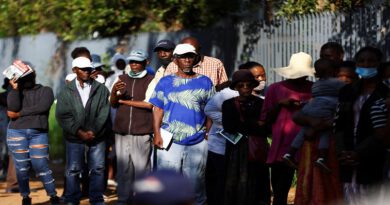Godongwana’s Eskom plans confirm De Ruyter’s claims of entrenched corruption
Shortly after Finance Minister Enoch Godongwana tabled a seemingly credible budget in parliament indicating National Treasury has a grip on the country’s finances, the already outgoing André de Ruyter was fired for publicly stating corruption was entrenched in the government.
Read: Eskom CEO André de Ruyter leaves with immediate effect
One of the main positives of the budget was the government’s assumption of R254 billion of Eskom’s debt, which reinstated the utility’s going concern status and ability to focus more on fixing its poorly-performing power stations.
However, this will be virtually impossible in an Eskom where, according to Du Ruyter’s comments in an interview aired on eTV on Tuesday, R1 billion is stolen every month.
Read: Eskom loses R1bn a month to corruption: De Ruyter
The irony is startling.
But there was a subtle hint that the National Treasury is aware of the cancer, which is evident from one of the two conditions attached to the debt assumption.
Specifically, National Treasury has appointed an international consortium with extensive experience in the operations of coal-fired power stations to review all plants in Eskom’s coal fleet and advise on operational improvements.
The review is scheduled to conclude by mid-2023. Most importantly, Eskom must implement the operational recommendations emanating from this assessment. Following this implementation, Eskom “must concession all these power stations with clear targets for the electricity availability factor and operations”.
(The other condition is that Eskom must build new transmission infrastructure.)
The question then arises whether this “independent consortium” would be able to identify the corruption challenge and for Eskom to implement steps to curb it.
After all, De Ruyter claimed his efforts to address the problem were met with fierce resistance and may have led to an attempt on his life.
The condition that Eskom must concession all these power stations is also critical as it will ensure the private sector takes over the running of the plants. It is an instruction to privatise Eskom’s operational functions, and this should send shockwaves through the “criminal cartels” (De Ruyter’s words) within Eskom.
Unfortunately, Godongwana did not provide any details about the international consortium and its powers to conduct a thorough investigation and make recommendations.
It is, therefore, to be expected that there will be significant pushback by these elements. If De Ruyter were correct that the corruption extends to responsible government ministries, this process would be more challenging, if not impossible. These departments would include Pravin Gordhan’s Department of Public Enterprises and Gwede Mantashe’s Department of Mineral Resources and Energy.
If these departments are not backing the independent investigation, it may be stillborn, to begin with.
And this brings the highly criticised new Minister of Electricity into the picture. Maybe it is an effort from within the presidency to be the “project manager” of this investigation. If this minister can support and drive this process, it may be one of Ramaphosa’s few genius moments as the leader of the state.
However, the government’s implementation of action plans has been pathetically poor. The most obvious answer would be for Ramaphosa to fire Gordhan and Mantashe and instil ministers who would commit to supporting the fight against corruption.
Ramaphosa is set to announce his new cabinet soon. Hopefully it is his second act of genius.
Source: moneyweb.co.za


